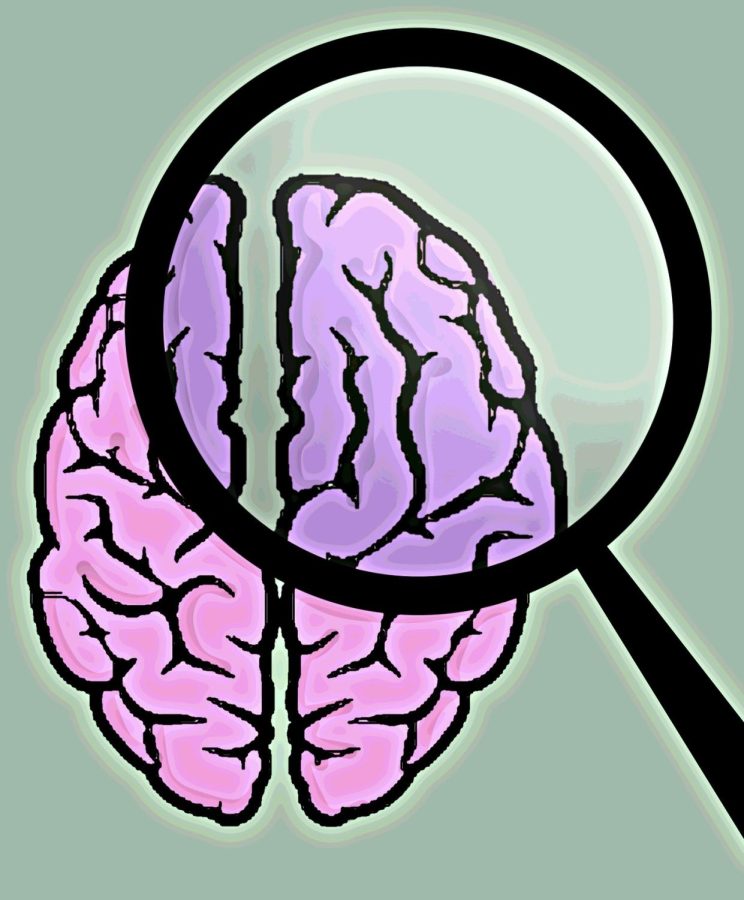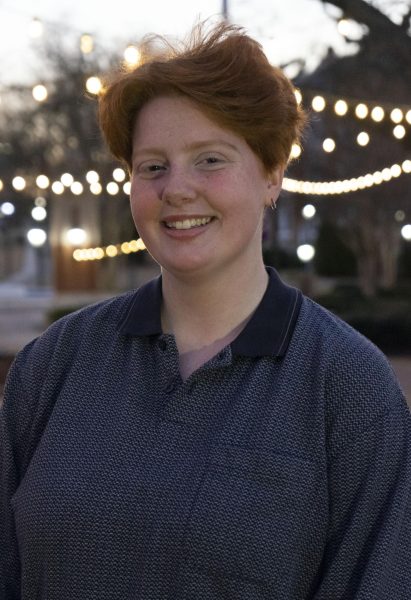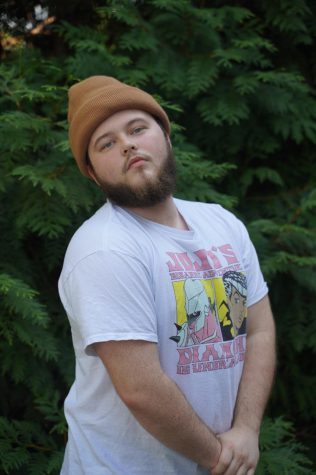Students, professor research conspiracy theory belief
February 2, 2023
A group of students is aiding Dr. Christopher Klein in his psychological research focused on conspiracy theory belief and intuition.
Each year, Klein generates a research idea that interests him, and then takes it to his students so that an entire project can be developed. Most of his research tends to center around a key focal point: implicit cognition.
“There’s some research that shows that the way that we think about ourselves, the world and people around us is really governed by two systems,” said Klein. “The first system is this really fast, automatic, intuitive system. The other is more of a slow, deliberate, effortful processing system. In my lab, I’m interested in the intuitive system, which is the implicit stuff. We all move through our day breathing, with blood pressure and a heart rate – all of these things that are not governed consciously by us. There are also parts of your thinking that are the same way. We’re interested in automaticity, the implicit, non-conscious types of cognition, so our projects usually have that focus.”
Their current study looks at implicit cognition and its role in people’s beliefs surrounding conspiracy theories and psychological misconceptions.
“We’re looking at a project right now that looks more at conspiracy intuitions, or that mentality that you have to make very intuitive judgments about the cause for things, versus the very deliberate, critical thinking, analytical method of why something might be happening,” Klein said. “We’re looking at that and how they might be related to later conspiracy theory belief development, and also if those things are related to psychological misconceptions, or myths about psychology like ‘We only use ten percent of our brain.’ It’s kind of a big project. It’s broken into a couple of pieces. About half of the students are working on one thing, and half on another.”
Two of the students involved in this project are Jonathan Allred and Maegan Martin. Allred participates in both parts of the study, and Martin helps with Part B. Both got involved in research with Klein after taking his Cognitive Psychology class. As Allred and Martin aim to attend graduate school, they took the opportunity to get some research experience under their belts before applying.
The project began with an idea generation phase, which is meant to determine what research topic is most interesting to students and, then, how they will tie that topic in with Klein’s focus of implicit cognition. From there, Klein and his students began brainstorming and did a review of scientific literature related to the topic to find out what has already been researched on the topic. This knowledge helped begin the planning phase, which determined what is being studied and what methods are being used.
Before conducting any research, the team had to submit for an Institutional Review Board approval, which confirms that all measures are safe and ethical for human participants. After receiving approval, they then began with data collection, which is ongoing.
Because the research is based on implicit cognition, most of the methodology is computer-based. The programming, created by Klein, is reaction-time-based, showing the participants’ speeds while responding as well as the responses themselves.
When all data has been collected, the students will compile the results and present posters about their research at the Rocky Mountain Psychological Conference.
No matter what the results of the study are, Klein believes that this research has been an amazing opportunity for the students involved.
“Sometimes you find what you expected, and you’re happy because you guessed right,” Klein said. “That’s fine, but I try to emphasize with students that no matter what your hypothesis is, if what you find doesn’t match the hypothesis, it doesn’t mean that it’s a failure. It means that you answered a question. You might not have answered it the way you wanted to, but you’ve probably created some new questions as well.”
For Allred, the experience has been both challenging and incredibly rewarding so far.
“I have absolutely adored it,” said Allred. “I never thought I would enjoy research, but being able to work under a professor and see more about how a graduate program will include research into it has been absolutely amazing.”
Martin shares a similar sentiment, emphasizing how helpful Dr. Klein’s guidance has been throughout the entire process.
“Growing up, I never thought I would do research,” said Martin. “I didn’t even know if I could come up with a reasonable question to ask, or something that’s worth studying. There are just so many things you can go into, and I didn’t realize that was a thing, and that you don’t have to do it all at one time. You can do one study, and it’s equally as valid to do a small study and get one good correlation as it is to do a big study and find seven different variables at one time. I think Dr. Klein really did a good job of breaking it up and making research not so daunting. He breaks things down into baby steps and invites people in.”
Both Allred and Martin feel that participating in this research has helped to strengthen their critical thinking skills and has prepared them for graduate school and further research in the future.
“I have really enjoyed the teamwork,” Allred said. “Being able to see each individual person work, see how they work, being able to get to know them better and hear about their future endeavors while also being able to learn so much has been amazing. I’ve learned so much in research that I could’ve never learned in a classroom. It’s definitely about the hands-on application while working in teams.”
For Klein, getting to work with his students on research is an incredibly rewarding experience.
“As faculty, we see the success of our students as our own success,” Klein said. “We live vicariously through our students in some ways. When they get a job that they love, we’ve won. When they get into a graduate program they really wanted to get into, we’ve won. That’s our success, and we really measure our success based on our students’ success, both in the classroom and in their research and academic work outside of the classroom.”
Allred hopes that the research will help show the scientific community more about how humans process information, which can lead to further studies in the future. He hopes to see more of this sort of build-up off of findings from all departments around campus as well, as he sees research as a very valuable experience for students.
For Martin, she hopes that research can help undergraduate students to think more critically.
“I really hope to break the barrier,” Martin said. “I see the barrier between undergraduate and graduate students as innovation. That’s the big hump you have to get over. As an undergrad, most of your time is spent memorizing things. As a graduate student, now you have to teach it, and you have to innovate it. I think what we can incorporate more of is critical thinking, going beyond the classroom.”
Seeing the expansion of his students’ skills has been very fulfilling for Klein.
“It’s a lot of fun, and it’s one of the highlights of my job as a faculty member,” Klein said. “I tell my students all the time that our students are the entire reason for the job that I have, and they’re the entire reason for me to be here doing my job. They’re at the center of all the decisions that we make, and they have to be at the core of all that we do. Through teaching and research, you get to meet such interesting students. When doing research, you get to work a little more in-depth with your students on some projects, and you see the tangible learning that happens along the way with these projects. It’s even more evident than what you see in a classroom, so it’s really rewarding as a faculty member to see the learning that takes place and the gaining of skills and abilities.”














